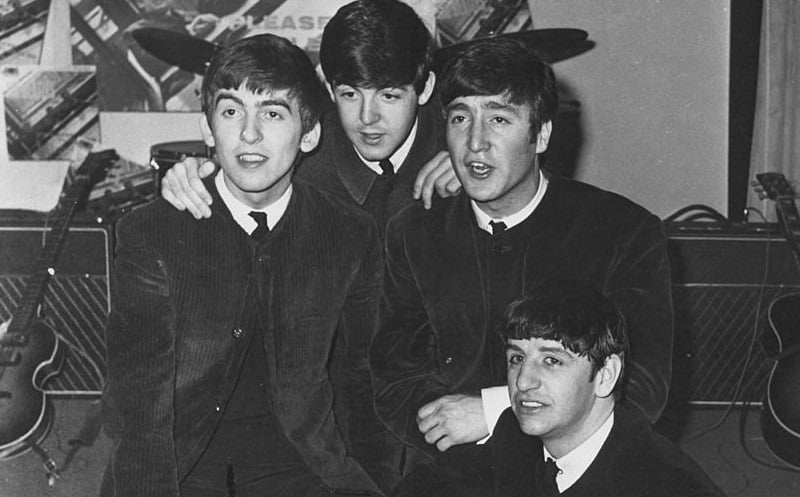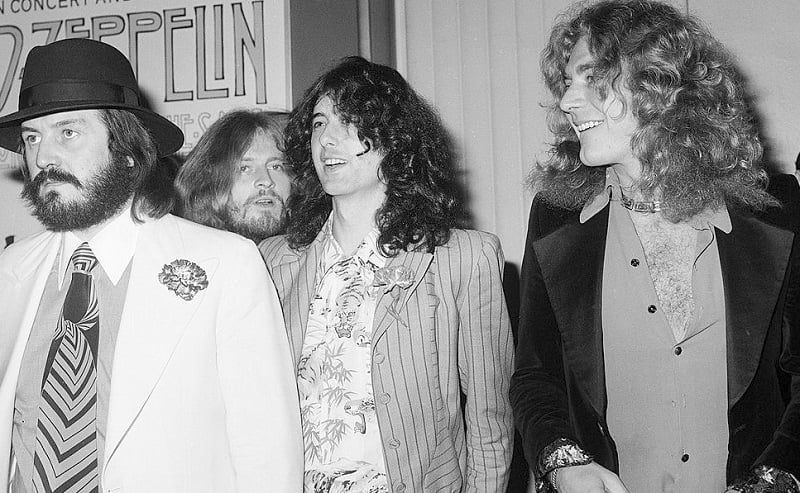The Beatles Albums Jimmy Page Said Were Nothing Special
If you were a rock band in the late 1960s, you were going to field questions about The Beatles. That’s just the way it was for groups who lived in the shadow of the music world’s reigning commercial force. But not everyone played nice when the press brought up the Fab Four.
The Who’s Pete Townshend certainly surprised an audience in ’66 when he took the Fab Four down a peg. When someone pointed to the Beatles’ obvious “quality” as a band, Townshend replied by saying he’d heard the band in stereo recently — and that the instrumentals sounded “lousy.”
In the mid-70s, interviewers were still asking the top bands of the new decade about The Beatles. That’s how Led Zeppelin’s Jimmy Page ended up discussing the Fab Four in 1976. Page, who (unlike Townshend) was never one to drop bombs in interviews, answered as evenly as ever.
However, Page was his typically candid self when asked about the forces of nature from Liverpool. Some 12 years after Page played on the Hard Day’s Night soundtrack, he spoke mostly about what he respected about the Fab Four — along with the thing that didn’t impress him.
Page said early Beatles records were ‘nothing to write home about’

In a fascinating talk with Alan Freeman in ’76, Page talked about the first record that made him want to grab a guitar and play (Elvis Presley’s “Let’s Play House”). From there, he spoke of learning his instrument, hearing Chuck Berry, and what he loved about the pioneers of rock.
He also mentioned the bands of the ’60s who “opened the doors” for a band like Zeppelin. At that point, Freeman asked him how much influence The Beatles exerted on the rock of the mid-’70s. “I don’t know about today’s [rock], but certainly at the time,” Page replied.
Page pointed out how The Beatles were one of the groups who helped break down social barriers. And he admired how the band had evolved. “There’s a classic example of a group who showed so much development and maturity withing their music in the years they were together,” he said.
To show how much the band had matured, Page started at the beginning. “Let’s face it: The early [Beatles] records aren’t, you know, they’re nothing really to write home about,” he said.
Page admired The Beatles of the ‘Magical Mystery Tour’ era onward

While some Beatles fans might balk at Page’s statement, you can probably see where he was coming from when you check the track listings of early Fab Four records.
Someone enamored with Elvis and Chuck Berry might not take away much from a cover of “Roll Over Beethoven.” And Paul McCartney was candid about lifting the bass line note-for-note from Berry’s “I’m Talking About You” for “I Saw Her Standing There.”
But Page definitely sounded like a fan of the Fab Four’s psychedelic era. “By the time they were at Magical Mystery Tour, it was really going somewhere,” he told Freeman. “Really.” Scanning that album for some Zeppelin influence, you might point to “Blue Jay Way” as a possibility.
Also see: How the Beatles’ Producer Reacted After Recording Led Zeppelin


